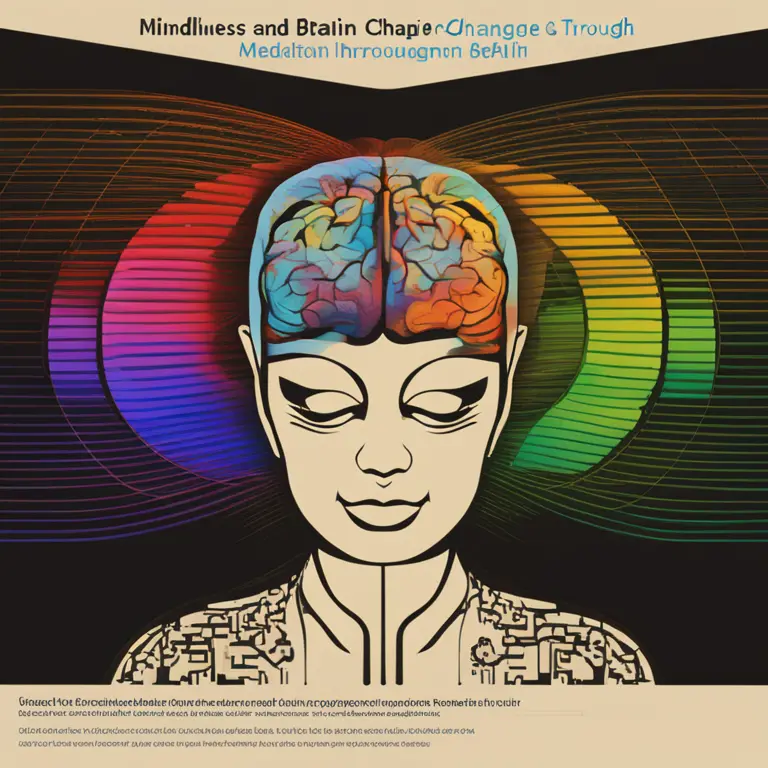
Meditation Techniques for Managing ADHD
Discover effective meditation practices to help manage ADHD, enhancing focus and emotional regulation in daily life.
article by Hina Kurosawa
Introduction to Meditation for ADHD
Meditation has long been heralded as a powerful tool for calming the mind and enhancing concentration. For individuals living with Attention Deficit Hyperactivity Disorder (ADHD), these benefits can be particularly impactful. In this article, we will explore the relevance of meditation as a complementary practice for those with ADHD, examining various techniques aimed at improving focus, reducing hyperactivity and impulsivity, and fostering a deeper sense of emotional balance.

Understanding ADHD and Its Challenges
ADHD is a neurodevelopmental disorder characterized by patterns of inattention, hyperactivity, and impulsivity. While medication and therapy are commonly prescribed treatments, supplementary approaches such as meditation can offer additional support. By engaging in meditative practices, individuals with ADHD can learn to slow down their thought processes and gain greater control over their reactions to stimuli, thus reducing the intensity of ADHD symptoms in their day-to-day lives.

Selecting Suitable Meditation Practices
Not all forms of meditation are equally suited for ADHD. Techniques emphasizing mindfulness and focused attention can be particularly beneficial. Mindfulness meditation encourages awareness of the present moment, which can help distract from external hyperstimuli. Focused attention meditation, such as concentrating on the breath or a single object, can improve one's ability to sustain attention over time.

Meditation and Neuroplasticity
Recent studies suggest that meditation may enhance neuroplasticity—the brain's ability to form new neural connections. This is promising for ADHD management, as it implies potential improvements in areas like executive function and emotional regulation. By regularly incorporating meditation into their routine, individuals with ADHD may experience structural changes in the brain that support better focus and decision-making skills.

Integrating Meditation into Daily Life
It's important to integrate meditation into one's daily routine for long-term benefits. Starting with short sessions, perhaps five minutes per day, and gradually increasing the duration can make the practice more accessible for those with ADHD. Using meditation apps or joining guided sessions can offer structure and support for individuals who may struggle with self-guided practices.
Challenges and Adaptations in Meditation
Initial attempts at meditation can be challenging for individuals with ADHD. Restlessness and wandering thoughts are common hurdles. Some may find it helpful to incorporate movement, such as walking meditation or yoga, to manage hyperactivity. Additionally, embracing a non-judgmental attitude towards one's meditation practice can cultivate patience and perseverance, essential for long-term success.
The Role of Consistency and Patience
The key to successful meditation for ADHD is consistency. Building a routine that becomes a regular part of one's lifestyle is crucial. It's also important to be patient with oneself and recognize that progress may be gradual. Over time, those with ADHD may notice enhanced ability to focus, reduced impulsivity, and an improved sense of inner calmness.
Published: 1/14/2024
Modified: 1/15/2024
More predictions
Come back here soon to learn more about yourself and your future


Calming the Storm: Mindfulness Meditation for Anger
Discover how mindfulness meditation can be a powerful tool for anger management, promoting inner peace and emotional balance.


Mindfulness & Meditation: A Guide for High Schoolers
Discover the benefits of mindfulness meditation tailored for the hectic life of high school students, and learn simple strategies to incorporate it into the daily routine.


Easing Loneliness with Mindfulness Meditation
Explore how mindfulness meditation can provide solace and connection to alleviate the feelings of loneliness.